#future of fintech apps
Photo

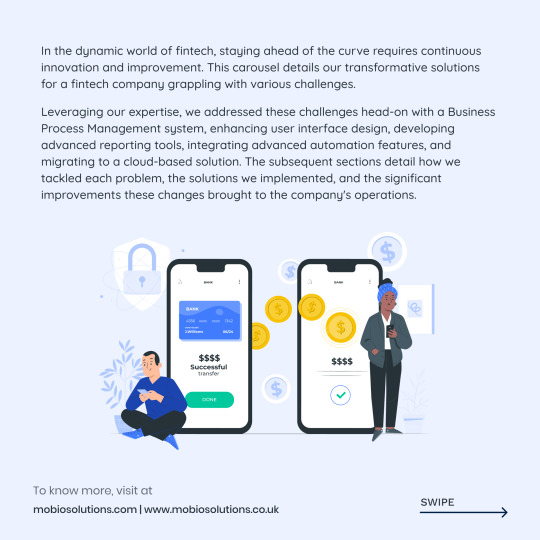
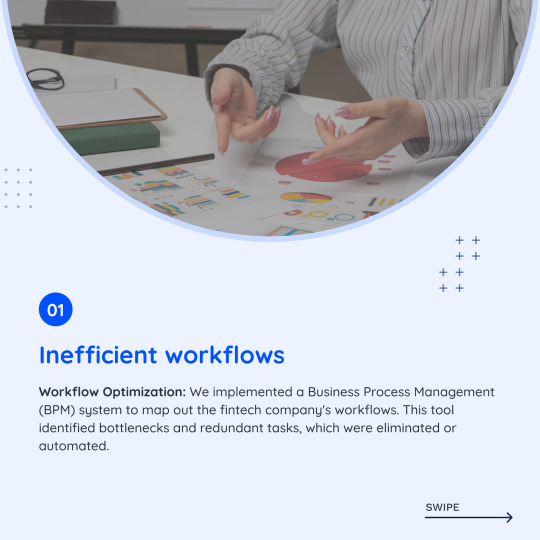
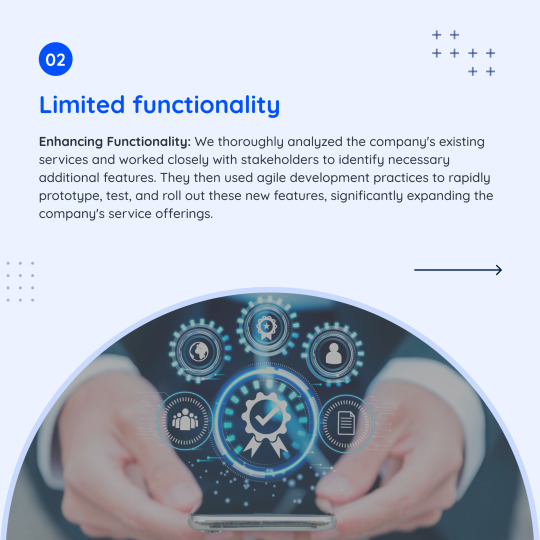
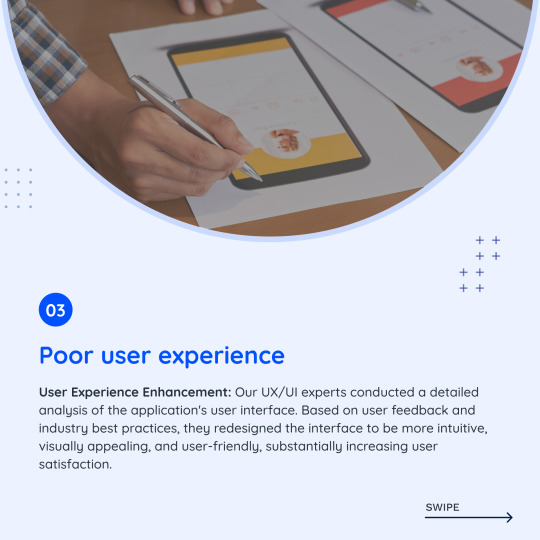
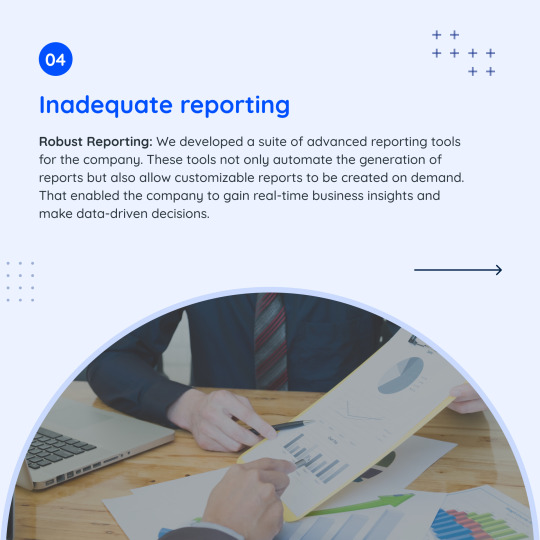
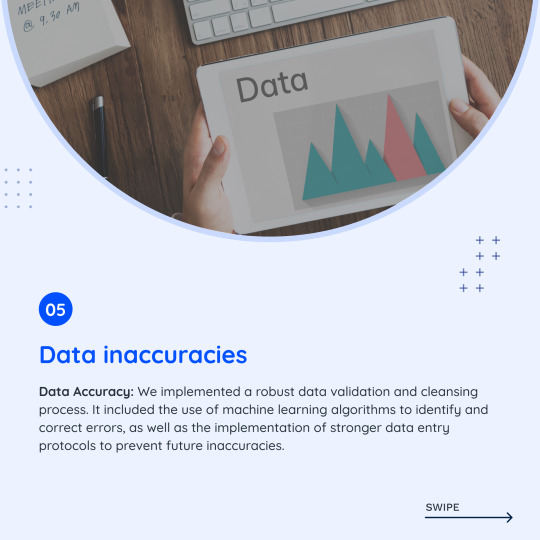
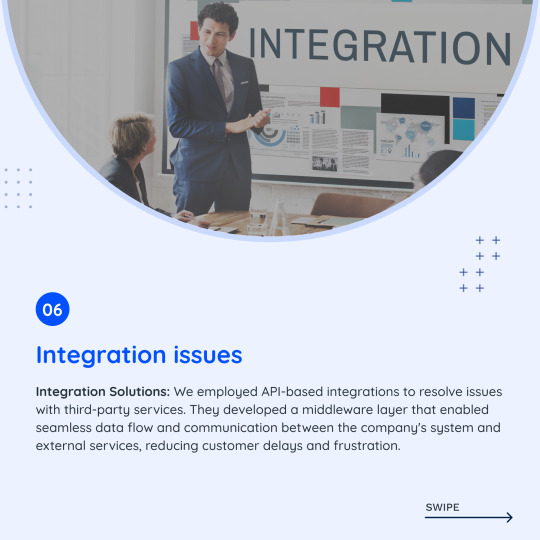
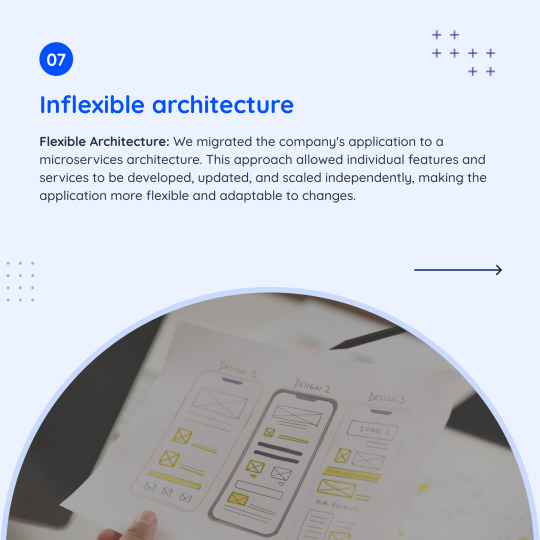
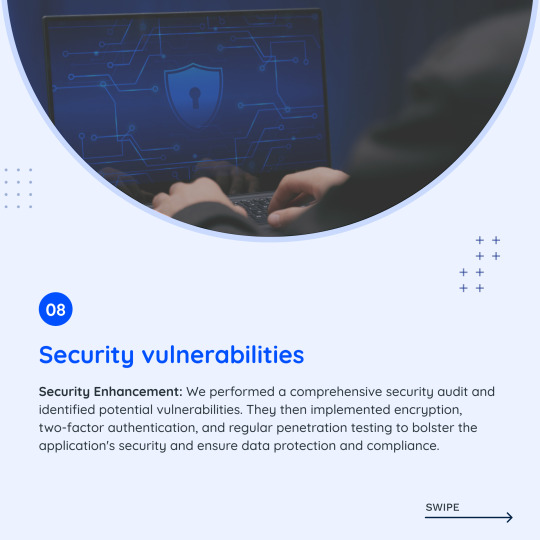
MobioSolutions team of industry experts uses advanced technology and deep domain knowledge to provide smooth, secure, and efficient Fintech solutions.
Whether it's integrating robust security protocols, ensuring seamless transaction processes, or driving innovative, user-friendly features, we're on the frontline of transforming financial technology.
Join us on this exciting journey and learn how we're paving the way for a better Fintech future.
#finance#fintech#FinServ#financialservices#mobile#web#app#development#fintechindustry#security#technology#future#mobiosolutions#uk
10 notes
·
View notes
Link
#Top Fintech Trends#Top Fintech Trends For 2022#Consumer Fintech Trends#Fintech Future Trends#Global Fintech Trends#Mobile App Development Firm
0 notes
Text
The Zoom went well for all concerned. SBF looked relaxed as he answered questions, talking, as he usually does, in complete paragraphs about topics of extreme complexity. Ramnik Arora, FTX’s head of product and another ex-Facebook engineer, remembers the meeting clearly: “We’re getting all these questions from Sequoia toward the end. He’s absolutely fantastic.” Arora locks eyes with me, and I am mesmerized. Arora is intense—calling to mind a Bollywood version of Adrian Brody. “Unbelievably fantastic,” he says, shaking his head.
Bailhe remembers it the same way: “We had a great meeting with Sam, but the last question, which I remember Alfred asking, was, ‘So, everything you’re building is great, but what is your long-term vision for FTX?’”
That’s when SBF told Sequoia about the so-called super-app: “I want FTX to be a place where you can do anything you want with your next dollar. You can buy bitcoin. You can send money in whatever currency to any friend anywhere in the world. You can buy a banana. You can do anything you want with your money from inside FTX.”
Suddenly, the chat window on Sequoia’s side of the Zoom lights up with partners freaking out.
“I LOVE THIS FOUNDER,” typed one partner.
“I am a 10 out of 10,” pinged another.
“YES!!!” exclaimed a third.
What Sequoia was reacting to was the scale of SBF’s vision. It wasn’t a story about how we might use fintech in the future, or crypto, or a new kind of bank. It was a vision about the future of money itself—with a total addressable market of every person on the entire planet.
“I sit ten feet from him, and I walked over, thinking, Oh, shit, that was really good,” remembers Arora. “And it turns out that that fucker was playing League of Legends through the entire meeting.”
OK everyone’s been going on about the League of Legends thing but honestly before it gets to that this piece makes the investors look like total idiots from the start, I want to sell these guys a city that’s a giant line.
79 notes
·
View notes
Text
TOP BLOCKCHAIN TRENDS FOR 2024
Solution about,
custom blockchain development company
fintech app development company
digital wallet app development company
Our Other Blogs, Highen Fintech Blogs
#blockchain trends#blockchain#fintech#fintech app development#lending software development company#digitalcurrency#digital wallet app development#mobile app development#technology#application#software#blockchain technology#trends#2024#blog
2 notes
·
View notes
Text
The Future of Finance: How Fintech Is Winning the Cybersecurity Race

In the cyber age, the financial world has been reshaped by fintech's relentless innovation. Mobile banking apps grant us access to our financial lives at our fingertips, and online investment platforms have revolutionised wealth management. Yet, beneath this veneer of convenience and accessibility lies an ominous spectre — the looming threat of cyberattacks on the financial sector. The number of cyberattacks is expected to increase by 50% in 2023. The global fintech market is expected to reach $324 billion by 2028, growing at a CAGR of 25.2% from 2023 to 2028. This growth of the fintech market makes it even more prone to cyber-attacks. To prevent this there are certain measures and innovations let's find out more about them
Cybersecurity Measures in Fintech
To mitigate the ever-present threat of cyberattacks, fintech companies employ a multifaceted approach to cybersecurity problems and solutions. Here are some key measures:
1. Encryption
Encrypting data at rest and in transit is fundamental to protecting sensitive information. Strong encryption algorithms ensure that even if a hacker gains access to data, it remains unreadable without the decryption keys.
2. Multi-Factor Authentication (MFA)
MFA adds an extra layer of security by requiring users to provide multiple forms of verification (e.g., passwords, fingerprints, or security tokens) before gaining access to their accounts.
3. Continuous Monitoring
Fintech companies employ advanced monitoring systems that constantly assess network traffic for suspicious activities. This allows for real-time threat detection and rapid response.
4. Penetration Testing
Regular penetration testing, performed by ethical hackers, helps identify vulnerabilities in systems and applications before malicious actors can exploit them.
5. Employee Training
Human error is a significant factor in cybersecurity breaches. Companies invest in cybersecurity training programs to educate employees about best practices and the risks associated with cyber threats.
6. Incident Response Plans
Having a well-defined incident response plan in place ensures that, in the event of a breach, the company can respond swiftly and effectively to mitigate the damage.
Emerging Technologies in Fintech Cybersecurity
As cyber threats continue to evolve, so do cybersecurity technologies in fintech. Here are some emerging technologies that are making a significant impact:
1. Artificial Intelligence (AI)
AI and machine learning algorithms are used to analyse vast amounts of data and identify patterns indicative of cyber threats. This allows for proactive threat detection and quicker response times.
2. Blockchain
Blockchain technology is employed to enhance the security and transparency of financial transactions. It ensures that transaction records are immutable and cannot be altered by malicious actors.
3. Biometrics
Fintech companies are increasingly adopting biometric authentication methods, such as facial recognition and fingerprint scanning, to provide a higher level of security than traditional passwords.
4. Quantum-Safe Encryption
With the advent of quantum computing, which poses a threat to current encryption methods, fintech companies are exploring quantum-safe encryption techniques to future-proof their security measures.
Conclusion
In the realm of fintech, where trust and security are paramount, the importance of cybersecurity cannot be overstated. Fintech companies must remain vigilant, employing a combination of advanced digital transformation solutions, employee training, and robust incident response plans to protect sensitive financial data from cyber threats. As the industry continues to evolve, staying one step ahead of cybercriminals will be an ongoing challenge, but one that fintech firms must embrace to ensure their continued success and the safety of their customers' financial well-being.
3 notes
·
View notes
Link
2 notes
·
View notes
Text
Top Fintech Trends That Shape Financial Future In 2023

The global financial services industry is going through a major transformation. It’s evident from the surge of fintech startups working in this space. With innovations like the blockchain and Robo-advisers, traditional banking is getting disrupted at an unprecedented pace. Financial institutions invest billions of dollars to keep up with digital payments and personal fintech apps development. But it’s not just about technology. Fintech trends will significantly impact the future of banking and beyond. Here are top Fintech Trends That Shape Financial Future in 2023.
Better Customer Experience and Collaboration
Digital transformation is happening in every industry. It’s not just about technology anymore. It’s about bringing customer experience to a new level. The banking sector is particularly well suited for this. Traditional banking has been very centralized. It’s not just about bringing digital banking to the masses. It’s about bringing the banking experience to the smartphone. Automated customer assistance, digital transactions, voice assistance, and more are expected to come shortly. This will result in a better experience for both customers and banks.
Digital Asset Management and Trading
Traditional banks rely on physical assets like cash and deposits. This poses security risks because of the risk of theft or damage.
Digital assets allow financial institutions to offer a range of financial services.
Blockchain technology is expected to transform trading and investment management. With digitization, financial institutions can now offer a range of services like direct trading or via smart contracts. This can make asset management more efficient and transparent. It can also reduce the costs of trading due to automation.
Also Read: Top 5 Creative Fintech App Ideas To Grow Your Business
NFC Payments and Fraud Detection
NFC payments have been around for a while. But it’s becoming commonplace in countries like the United States and Japan. The introduction of various mobile wallets is expected to increase. It can also reduce fraud due to the use of an original ID. Many banks are now offering this service. This increases the adoption of NFC payments. It also allows banks to detect fraud and better serve their customers.
NFC payments are expected to increase. This can be attributed to the rise of mobile payment systems like Apple Pay and Android Pay. The rise of fintech and innovations like Robo-advisers are expected to facilitate the process.
Fraud detection is expected to improve. With the rise of AI and machine learning, banks can detect more types of fraud. In fact, it can even help customers manage their money.
Artificial Intelligence and Blockchain Integration
Artificial intelligence is expected to become the next big thing in banking. Apart from helping consumers manage their money, it can also be used for fraud prevention.
AI is already being used for detecting fraudulent transactions at an early stage. It can also be used for making predictions to improve the customer experience.
Blockchain technology is expected to become more integrated with the financial sector. Government regulations and players’ efforts to expand the use of blockchain have led to a surge in interest in the technology. It can transform the industry, especially in the financial sector.
However, it will take some time for it to gain traction in the market. AI and blockchain integration will also help banks improve the customer experience.
Robust APIs and User-friendly Websites
As the adoption of digital channels increases, banks will have to improve their APIs and make them more robust. APIs are the key that unlocks the power of apps.
They are used by developers to develop apps that can be plugged into the bank system. Another trend that will be helpful for banks is user-friendly websites.
With the increase in mobile banking transactions, banks have been focusing on making their websites more interactive. They now have to rely more on AI and machine learning to make their websites more engaging for customers.
Also Read: Best Technological Aspects For FinTech App Development
Insurtech Will Disrupt Financial Sector
The insurance sector is also expected to be impacted by increased digital payments. Insurtech companies have shown great potential to disrupt the traditional model of insurance. These companies offer insurance through blockchain technology and help consumers save money using their personal data.
Another interesting trend that will significantly impact the financial sector is the rise of asset management. The emergence of Robo-advisers and investment platforms has encouraged asset managers to shift towards a more digital approach. The emergence of new technologies also means that startups can offer better financial services. With the rise of machine learning and artificial intelligence, asset management is expected to become more sophisticated.
Conclusion
The fintech revolution has transformed how people save, transact, and invest. It has also led to the growth of new fintech mobile app development services. Artificial intelligence, blockchain technology, and the internet of things have driven the revolution. There’s no sign of slowing down, and these are just some of the fintech trends that will shape the future of Financial services in 2023.
The fintech ecosystem must evolve to make it accessible and equitable for everyone. Mobio Solutions is a leading Fintech app development company. We pride ourselves on producing sturdy fintech apps and providing our clients with loads of joy with our exceptional work ethics.
#fintech#finance#finserv#financial#service#fintech industry#trends#2023#appdevelopment#MobioSolutions
6 notes
·
View notes
Text
#Hey! Here's my referral link to sign up for Current. It's a great way to get paid faster, earn a 4.00% bonus on savings, and build credit safely. Just use this link to download the app. Once you switch your payroll and deposit at least $200 within 45 days, we'll both get a $50 cash bonus! Terms apply. JONATHOR867 https://current.com/get-started/?creator_code=JONATHOR867&impression_id=38ea14aa-d58f-488a-b613-4fda8353c31f
0 notes
Text
Unlock the future of your finances! Dive into our latest article exploring evolving fintech trends and discover how financial apps are morphing to make your money work smarter. 📲
From AI advisors to mobile banks, the future is at your fingertips. Are you ready to leap into the new era of financial empowerment?
2 notes
·
View notes
Text
Ways in Which Retirement Payroll Solutions Enhance Transparency
In a webinar on “The Future of Participant Experience Innovation in the US Retirement Industry” in August 2023, Sagar Shankaranarayanan from Congruent Solutions said, “People tend to trust tech companies much more than they trust their banks,” and it is true. In the era of digital intervention, people prefer fintech apps to any other for their transparent, credible, and trustworthy.
How does this apply to retirement payroll solutions?
The first thing is to understand the market. Remember, when it comes to retirement plan administration software, which manages the vast volumes of data being collected at every touchpoint from participants, data analytics is an important area of focus in processing customer data. This will help identify customer behaviour patterns, preferences, and trends In this scenario, transparency and credibility are things that must be taken into account.
The second factor is the personalised approach. The data-driven solutions for retirement payroll software help tailor solutions according to the needs of plan participants. This enhances the overall customer experience in retirement planning, just as it has made financial products more relevant and valuable to consumers.
The third important factor is a transparent interaction. The participants must experience transparency in every term of options with the feature to share data in a more secure and thorough authentication and verification that is seamless and non-intrusive. Clear communication dissemination, simplified documentation, and less paperwork make it even more seamless.
The next factor is going paperless. Since it is a digital tool, it reduces the usage of paper and enhances tracking, trust, and transparency.
The final factor is real-time analytics. Retirement payroll solutions offer transparent insights into fund performance, contribution rates, and investment options. By providing real-time updates, participants can actively monitor their retirement savings, fostering trust and confidence in the system. These overseeing features help ensure transparency and trustworthiness for every plan participant and provider.
0 notes
Text
Navigating the Future of Tech: The Strategic Advantages of Software Development Outsourcing - Technology Org
New Post has been published on https://thedigitalinsider.com/navigating-the-future-of-tech-the-strategic-advantages-of-software-development-outsourcing-technology-org/
Navigating the Future of Tech: The Strategic Advantages of Software Development Outsourcing - Technology Org
These days, businesses of all sizes are continuously facing the pressure of the necessity to innovate and evolve to remain competitive. To do that, they need to create software solutions that are complicated and require considerable time and effort to create one. Of course, you can build a software development team. But that option can be costly for many companies. So, in this article, you will read why it is worth entering software development outsourcing rather than building an in-house team.
Software development – illustrative photo. Image credit: Fotis Fotopoulos via Unsplash, free license
What is Software Development Outsourcing?
Outsourcing means entrusting development tasks or the whole project lifecycle to a dependable external vendor. This vendor complements your own team and supplies all the necessary skills and resources to bring your software idea to life.
Outsourcing is not limited to a particular location in contrast to traditional internal development. Qualified specialists can be easily found in every corner of the world. Thus, companies have a higher chance to find and hire the best professionals that can meet their exact needs and requirements. Moreover, using outsourcing is always cheaper than building your team from scratch.
Outsourcing Benefits
A coding team – illustrative photo. Image credit: Sigmund via Unsplash, free license
The demand for outsourcing mobile app development is becoming more popular. Let us now outline its benefits:
Financial Optimization
For many businesses, it can be difficult to afford mobile app development. Through outsourcing, they can work with regions that have less labor costs. This collaboration results in significant financial savings. They can then be strategically reinvested in other essential activities such as marketing, sales or product development, accelerating overall business growth.
Sharpened Focus on Core Competencies
It requires a lot of time to control and supervise the internal development team. In contrast, the outsourcing model enables companies to concentrate on their principal activities and shift their focus from secondary ones. The secondary activities may involve product development, customer service, sales and marketing. Hence, it provides an advantageous position for business.
Flexibility and Scalability on Demand
The best feature of outsourcing is its adaptability. Companies can quickly adjust the number of people working on mobile app development to meet the changing needs of the project. Need a large number of developers to work on a complicated feature? A skilled contractor can easily add more resources to your project. In addition, the outsourced workforce can be adjusted as a project nears completion. This adaptive approach ensures that companies get the resources they need at the right time.
Access to Specialized Skills
Most companies face a problem trying to hire an expert with specialized expertise in a target technology. With outsourcing, the number of professionals specializing in certain areas available to you fourfold increases, it gets much easier to find the experts you might need for your project.
To sum up, the number of potential advantages you might derive appears to be rather big.
Potential Outsourcing Risks
However, you should take into account the project development obstacles. The key ones, in this case, are:
Intellectual Property Protection
To ensure the security of confidential information and sensitive business concepts, every company that is about to engage in a mobile app development project should safeguard their intellectual property. By agreeing on mutual non-disclosure agreements and relying on proven security of the vendor, one will take an important step towards minimizing risks as far as sharing confidential information. It is definitely a wise approach to combine protective measures while working with an outsourcing company.
Communication and Cultural Nuances
Clear and constant communication is the foundation of any effective relationship. Selecting vendors who have worked in a variety of locations can help bridge cultural and language barriers. Video conferencing and project management technologies that enable smooth collaboration are essential. In addition, increasing understanding of cultural nuances on both sides can ensure seamless interactions throughout the project timeline.
Vendor Selection
The next important issue presumes the selection of a proper vendor. Thorough research is required. Examine the vendor’s track record of successful project delivery, experience in your field, and familiarity with the technologies required for your project. Reading Internet reviews and interviewing past customers can also provide important details about a vendor’s capabilities and performance.
Conclusion
Business communication – illustrative photo. Image credit: LinkedIn Sales Solutions via Unsplash, free license
Software development outsourcing is not a silver bullet but can be a powerful lever for companies seeking a competitive advantage in today’s dynamic IT sector. Companies can reduce costs, gain increased focus, improve scalability, and access specialized expertise to increase their time-to-market and make better resource decisions that ultimately lead to more predictable revenue growth. Additionally, hiring a mobile app development agency is another simple but effective way to drive innovation and success.
#app#app development#approach#Article#bridge#Building#Business#coding#Collaboration#communication#Companies#course#customer service#details#developers#development#development project#financial#Fintech news#Foundation#Future#growth#hiring#Innovation#intellectual property#Internet#it#language#LESS#life
0 notes
Text
Fintech and the Future of Digital Payments - Global Fintech Series.

Gone are the days of waiting in long lines at bank branches. Today, with a few taps on your smartphone, you can access and manage your finances with unmatched convenience and security.
Defining Mobile Banking
Mobile banking refers to the ability to access and manage your bank accounts through a dedicated mobile application. These apps, downloadable on smartphones and tablets, provide a user-friendly interface for a wide range of financial activities. Mobile banking in its core refers to the use of smartphones or other mobile devices to conduct banking transactions remotely. It encompasses a wide range of services, including account management, fund transfers, bill payments, mobile deposits, and even investment activities. The presence of smartphones has made mobile banking accessible to a broad spectrum of users, enabling them to carry out financial transactions anytime, anywhere, with just a few taps on their screens.
One of the primary advantages of mobile banking is its convenience. Long gone are the days when customers had to visit physical bank branches during limited hours to perform routine transactions. With mobile banking apps, users can access their accounts 24/7, allowing them to check balances, review transaction histories, and make payments at their convenience. This accessibility empowers users to stay on top of their finances and respond promptly to any banking needs or emergencies.
This flexibility extends to account management as well, with users being able to update account information, order checks, and even open new accounts directly from their mobile devices.
Here’s a glimpse into the key features offered by some of the top mobile banking apps:
Account Management: View real-time account balances, transaction history, and statements for checking, savings, credit cards, and other linked accounts.
Fund Transfer: Effortlessly transfer money between your own accounts or send payments to others within the bank or even to external accounts.
Bill Pay: Schedule and pay bills for utilities, phone, internet, and other recurring expenses directly from your mobile app.
Mobile Deposit: Capture check images using your phone’s camera and deposit them electronically into your account, eliminating the need for physical visits to ATMs or branches.
Mobile Payments: Utilize contactless payment methods like Apple Pay or Google Pay to make secure in-store purchases or pay for online transactions through mobile wallets integrated with your banking app.
Financial Management Tools: Track your spending habits, set budget limits, and receive personalized financial insights to empower informed financial decisions.
Customer Support: Communicate with your bank’s customer service representatives directly through the app for inquiries or assistance. Global Fintech Series
Fintech Insights: Hyper-personalization in Banking: The Tech Journey to Serving a Segment of One
Global Mobile Banking Trends
While mobile banking apps are developed by individual banks, Mastercard plays a crucial role in facilitating secure and efficient transactions behind the scenes. Mastercard, a global leader in payment solutions, has been at the forefront of innovation in mobile banking. Through its Mastercard Mobile Banking app, users can enjoy a seamless banking experience with a host of features designed to simplify and streamline financial management. One of the key offerings of the Mastercard Mobile Banking app is the ability to link multiple accounts and cards, providing users with a comprehensive view of their finances in one place. This unified dashboard allows users to monitor their spending, track transactions and set budgeting goals more effectively. In addition to account management features, the Mastercard Mobile Banking app also facilitates secure and convenient payments. Users can make purchases online or in-store using their mobile devices, leveraging Mastercard’s global network of merchants and partners.
Furthermore, Mastercard prioritizes security in its mobile banking offerings, employing advanced encryption technologies and authentication mechanisms to protect users’ financial information.
Here’s how Mastercard contributes to the mobile banking ecosystem:
Network Infrastructure: Mastercard provides a secure and reliable network that facilitates authorization and settlement processes between your bank and merchants during mobile payments.
Tokenization Technology: Mastercard’s tokenization technology replaces your actual card details with a unique digital token during transactions. This adds an extra layer of security, preventing merchants from storing your sensitive card information.
“Pay by Bank App” Functionality: Mastercard offers “Pay by Bank App,” a solution that allows online retailers to integrate secure payment options directly within their mobile banking app. This eliminates the need to enter card details on multiple platforms, streamlining the online shopping experience.
PayPal, another prominent player in the mobile banking space, offers a suite of mobile banking services through its PayPal Mobile app. With over 300 million active users worldwide, PayPal has established itself as a trusted platform for online payments and money transfers.
Linking Bank Accounts: Connect your bank accounts or debit/credit cards to your PayPal account for seamless fund transfers between your bank and PayPal.
Payments and Money Transfers: Send and receive money easily using email addresses or phone numbers linked to other PayPal accounts.
Online Shopping: Make secure online payments at millions of online retailers worldwide that accept PayPal as a payment method.
Bill Pay: Schedule and pay bills directly through your PayPal account for various merchants.
In-Store Payments: Use PayPal for contactless payments at select stores using your phone’s QR code.
PayPal Credit: Apply for and manage your PayPal credit line for online and in-store purchases directly through the app.
What’s In Store for 2024?
In 2024, the focus is on speed, convenience, and personalization, with exciting new features emerging. Here are three key trends driving mobile banking this year:
Real-Time on Demand: Gone are the days of waiting for transactions to clear. Mobile banking is moving towards real-time services, allowing instant money transfers, faster bill payments, and immediate account updates. This aligns perfectly with our increasingly on-the-go lifestyles.
AI-Powered Personalization: Mobile banking apps are leveraging artificial intelligence (AI) and machine learning (ML) to personalize the user experience. Imagine AI analyzing your spending habits to suggest budgeting tools or recommend investment options. Chatbots powered by AI can answer your questions 24/7 and even troubleshoot minor issues.
Enhanced Security and Integration: Security remains a top priority. Mobile banking apps are implementing advanced security features like biometric authentication (fingerprint or facial recognition) for secure logins. Additionally, we’re seeing a rise in integration with the Internet of Things (IoT). Imagine managing your smart home devices or receiving real-time fraud alerts directly through your banking app.
Augmented Reality (AR) Experiences: AR technology is being utilized to provide immersive banking experiences, allowing users to visualize their financial data, track expenses, and interact with virtual financial advisors in real-time.
IoT Integration: Mobile banking apps are increasingly integrating with Internet of Things (IoT) devices, enabling users to monitor their finances, make payments, and receive alerts directly from connected devices such as smartwatches, cars, and home appliances.
The Future of Mobile Banking
The future of mobile banking holds tremendous promise, driven by ongoing technological advancements and evolving consumer preferences. As smartphones become increasingly integrated into everyday life, mobile banking is poised to become even more ubiquitous, transforming the way people manage their finances.
One key trend shaping the future of mobile banking is the rise of artificial intelligence (AI) and machine learning. Banks and financial institutions are harnessing the power of AI to personalize the banking experience, offering tailored recommendations and insights based on individual spending habits and financial goals. Chatbots powered by AI are also becoming commonplace, providing instant assistance and support to users, whether it’s answering queries, resolving issues, or providing financial advice.
Moreover, the rise of biometric authentication technologies, such as facial recognition and fingerprint scanning, will enhance security and convenience in mobile banking. These technologies offer more secure alternatives to traditional passwords and PINs, reducing the risk of unauthorized access and identity theft.
Here’s a glimpse into what the global financial organizations will be on to:
AI-powered Finance: Expect artificial intelligence (AI) to play a bigger role. AI-powered chatbots will offer 24/7 customer support, answer financial queries, and even provide personalized budgeting and investment advice.
Biometric Authentication: Fingerprint, facial, and voice recognition will become more sophisticated, offering a secure and convenient way to log in and authorize transactions.
Open Banking: Open Banking APIs will enable a wider range of financial services to be integrated within mobile banking apps. Imagine managing investments, loans, and insurance policies all from one central hub.
Contextual Banking: Mobile banking will become more context-aware, suggesting relevant financial products and services based on your spending habits, location, and upcoming bills.
Blockchain Integration: Blockchain technology could revolutionize mobile payments, enabling faster, more secure, and transparent cross-border transactions.
Gamification: Gamification elements like rewards and badges can incentivize healthy financial habits and make managing finances more engaging.
Wearable Integration: Wearable devices like smartwatches could become extensions of your mobile banking app, allowing for on-the-go payments and real-time financial tracking.
Mastercard and PayPal, as leaders in the mobile banking space, continue to innovate and expand their offerings, providing users with seamless and secure mobile banking experiences tailored to their needs and preferences. As mobile technology continues to evolve, mobile banking is poised to play an even more significant role in shaping the future of finance, offering greater accessibility, convenience, and security to users around the globe.
#fintech#finance#news#technology#banking#mobile banking#mobile#ai#artificial intelligence#globalfintechseries#fintechseries
1 note
·
View note
Text
Essential Fintech Solutions for Organizations and Individuals
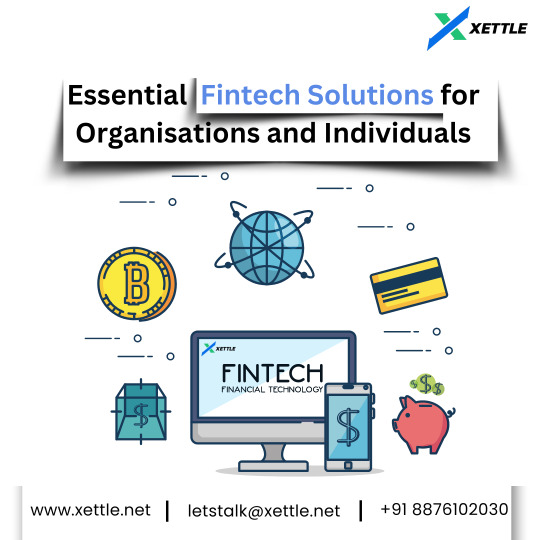
The fintech landscape is evolving rapidly, offering a myriad of innovative solutions that cater to the diverse needs of organizations and individuals alike. From advanced banking platforms to personalized financial management tools, fintech solutions are revolutionizing how we manage money, conduct transactions, and plan for the future. Xettle Technologies, a leader in fintech software development, is at the forefront of this transformation, empowering organizations and individuals with cutting-edge solutions tailored to their specific requirements.
Digital Banking Platforms:
Digital banking platforms have become essential for organizations and individuals seeking convenient and secure ways to manage their finances. These platforms offer a range of features, including online account management, mobile banking apps, and digital payment capabilities, enabling users to access their accounts, transfer funds, and pay bills anytime, anywhere.
Xettle Technologies specializes in developing robust digital banking solutions that provide organizations with the flexibility and scalability they need to meet the evolving needs of their customers. By leveraging Xettle's expertise in Fintech Software development, organizations can offer their customers seamless and intuitive digital banking experiences, driving customer engagement and loyalty.
Payment Processing Solutions:
Payment processing solutions play a critical role in facilitating transactions between organizations and their customers. Whether it's processing credit card payments, managing recurring billing, or facilitating international transactions, payment processing solutions streamline the payment process and ensure smooth and secure transactions.
Xettle Technologies offers a comprehensive suite of payment processing solutions designed to meet the needs of organizations of all sizes. From secure payment gateways to advanced fraud detection systems, Xettle's fintech banking solutions empower organizations to process payments efficiently and securely, reducing friction and enhancing the overall customer experience.
Personal Financial Management Tools:
Personal financial management tools are invaluable for individuals looking to take control of their finances and achieve their financial goals. These tools provide users with insights into their spending habits, help them create budgets, and track their progress towards their financial objectives.
Xettle Technologies develops user-friendly personal financial management tools that empower individuals to make informed financial decisions and achieve financial wellness. By leveraging Xettle's expertise in fintech software development, individuals can access intuitive and customizable financial management solutions that help them take control of their finances and plan for the future with confidence.
Robo-Advisory Services:
Robo-advisory services leverage artificial intelligence and machine learning algorithms to provide individuals with personalized investment advice and portfolio management solutions. These services analyze user preferences, risk tolerance, and financial goals to recommend investment strategies and optimize portfolio performance.
Xettle Technologies offers advanced robo-advisory services that combine cutting-edge technology with industry expertise to deliver personalized investment solutions for individuals. By leveraging Xettle's fintech software, individuals can access sophisticated investment algorithms and portfolio management tools that help them achieve their financial objectives and maximize returns on their investments.
Regulatory Compliance Solutions:
Regulatory compliance is a critical consideration for organizations operating in the financial services industry. Regulatory compliance solutions help organizations navigate complex regulatory requirements, automate compliance processes, and mitigate compliance risks.
Xettle Technologies specializes in developing regulatory compliance solutions that enable organizations to stay compliant with regulatory standards and requirements. By leveraging Xettle's expertise in fintech banking solutions, organizations can streamline compliance processes, reduce regulatory burdens, and ensure adherence to industry regulations, safeguarding their reputation and mitigating compliance risks.
In conclusion, fintech solutions play a pivotal role in empowering organizations and individuals to achieve their financial objectives and navigate the complexities of the modern financial landscape. Xettle Technologies, with its innovative fintech software and industry expertise, is committed to delivering cutting-edge solutions that meet the diverse needs of organizations and individuals alike, driving innovation, efficiency, and growth in the fintech industry.
#Fintech#Finance#Financial Planning#Technology#Tech#development#marketing#keywords fintech development#xettle technologies
1 note
·
View note
Text
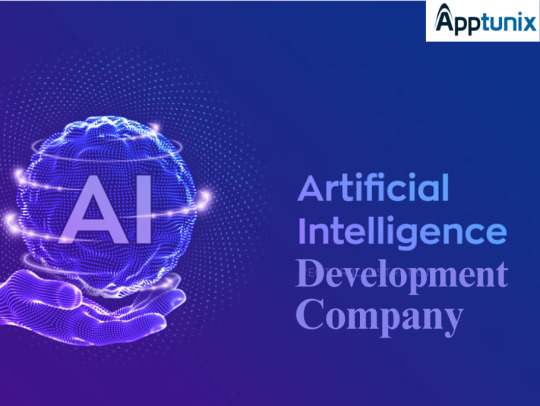
Apptunix drives innovation as a leader in AI development in Dubai, pioneering groundbreaking solutions that redefine industries and elevate business performance. With a focus on pushing the boundaries of what's possible, Apptunix leverages cutting-edge AI technologies to solve complex challenges and unlock new opportunities for growth and efficiency. From personalized healthcare solutions to data-driven fintech platforms, Apptunix's transformative AI solutions are reshaping the future of Dubai's business landscape.
0 notes
Text
The Anatomy of Fintech's Triumph A Comprehensive Analysis
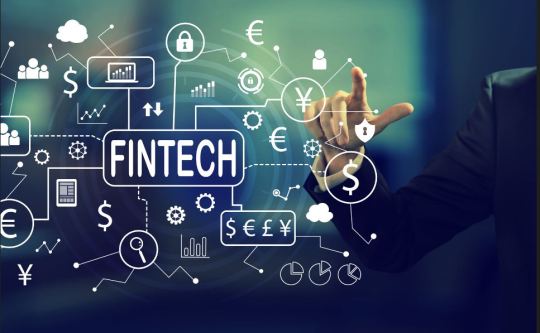
Fintech's ascent from obscurity to ubiquity begs the question Why is fintech so successful? The answer is multifaceted, reflecting the industry's dynamic nature and relentless pursuit of innovation.
Innovation: Pioneering the Future Innovation lies at the heart of fintech's success. From blockchain technology to artificial intelligence, fintech companies continuously push the boundaries of what's possible in finance. This culture of innovation not only attracts top talent but also drives consumer adoption of new technologies.
Accessibility: Bridging the Gap Fintech has democratized access to financial services, leveling the playing field for consumers worldwide. Whether it's through mobile banking apps or digital investment platforms, fintech companies offer solutions that are more convenient, affordable, and inclusive than traditional alternatives.
Agility: Thriving in Uncertainty In a rapidly evolving landscape, agility is a prerequisite for success. Fintech startups excel in their ability to adapt quickly to changing market conditions and regulatory environments. This flexibility enables them to seize opportunities and navigate challenges with ease.
Collaboration: Fostering Innovation Despite being disruptors, fintech companies recognize the value of collaboration. Partnerships with banks, regulators, and other industry players facilitate innovation and drive growth. By working together, stakeholders can leverage their respective strengths to create more impactful solutions.
In summary, fintech's success can be attributed to its unwavering commitment to innovation, dedication to accessibility, agility, and collaborative approach. As the industry continues to evolve, fintech will undoubtedly remain at the forefront of financial innovation, shaping the future of finance.
0 notes
Text
The Future of Forex Payments: Emerging Technologies and Trends
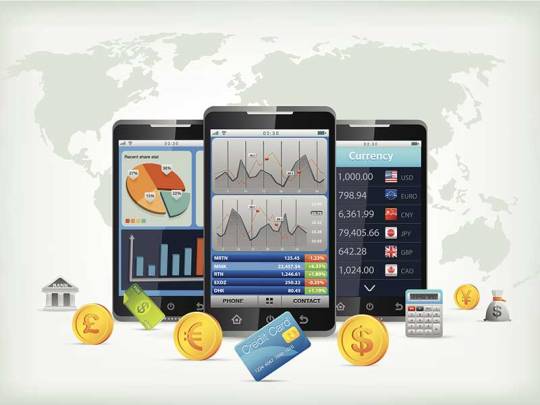
In the fast-paced world of global finance, the landscape of foreign exchange (forex) payments is continually evolving. From multinational corporations conducting cross-border transactions to individuals sending money to loved ones overseas, the efficiency, security, and cost-effectiveness of online forex trading payment service provider are paramount. As we look ahead, several emerging technologies and trends are poised to redefine the future of forex payments, promising greater convenience, transparency, and accessibility for businesses and consumers alike.
Cryptocurrency Integration: One of the most disruptive forces in the financial industry, cryptocurrencies like Bitcoin and Ethereum have gained significant traction as alternative forms of payment. While their volatile nature has raised concerns, advancements in blockchain technology are making cryptocurrencies increasingly viable for forex transactions. With lower transaction fees, faster settlement times, and decentralized systems eliminating the need for intermediaries, cryptocurrencies offer a compelling solution for cross-border payments. As regulatory frameworks mature and adoption grows, expect to see greater integration of cryptocurrencies into the forex landscape.
AI-driven Payment Processing: Artificial Intelligence (AI) is revolutionizing various aspects of finance, and forex payments are no exception. AI-powered algorithms can analyze vast amounts of data to optimize currency conversions, mitigate risks, and detect fraudulent activities in real-time. By leveraging machine learning and predictive analytics, financial institutions can streamline forex gateway service provider workflows, enhance decision-making capabilities, and provide personalized services tailored to individual customer needs. As AI continues to evolve, expect to see more sophisticated solutions that improve the speed, accuracy, and security of forex payments.
Biometric Authentication: Traditional authentication methods like passwords and PINs are increasingly vulnerable to cyber threats and identity theft. Biometric authentication, which relies on unique physical characteristics such as fingerprints, facial recognition, and iris scans, offers a more secure and convenient alternative for verifying user identities in forex payments. By incorporating biometric technologies into mobile banking apps and online platforms, financial institutions can strengthen security measures while simplifying the authentication process for customers. As biometric technology becomes more widespread and sophisticated, expect to see its widespread adoption in forex payments to enhance security and user experience.
Impact of Globalization: The ongoing process of globalization has fueled the expansion of international trade and commerce, driving demand for efficient and reliable forex payment solutions. As businesses increasingly operate on a global scale, there is a growing need for seamless cross-border payment systems that can facilitate transactions across different currencies and jurisdictions. Emerging markets, in particular, are witnessing rapid economic growth and digitalization, creating opportunities for innovative fintech solutions to address the unique challenges of forex payments in these regions. As globalization continues to reshape the global economy, expect to see greater convergence and interoperability among forex payment systems to support the needs of an interconnected world.
In conclusion, the future of forex trading payment gateway is being shaped by a convergence of emerging technologies and evolving market trends. From the integration of cryptocurrencies and AI-driven payment processing to the adoption of biometric authentication and the impact of globalization, these developments promise to redefine the way businesses and individuals conduct cross-border transactions. As financial institutions and fintech companies adapt to these changes, the future of forex payments holds immense potential for innovation, efficiency, and inclusivity in the global economy.
#payment gateway#forex payment gateway#forex gateway service provider#forex trading payment gateway#online forex trading payment service provider
0 notes